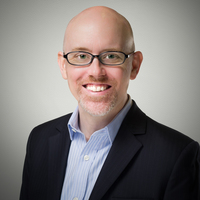
Tyson Vaughan
US Army Corps of Engineers Institute for Water Resources, Institute for Water Resources, Faculty Member
American Association for the Advancement of Science (AAAS), Science & Technology Policy Fellowship, Science & Technology Policy Fellow
Dr. Tyson Vaughan is a civil works and water resources policy analyst and a scholar of the social dimensions of disaster recovery and risk reduction, community resilience, and environmental collaboration and public engagement. As a Sociologist at the Institute for Water Resources, U.S. Army Corps of Engineers, he works to improve federal policy, engage the public, and enhance the resilience of American communities facing environmental risks.
Dr. Vaughan regularly represents the Corps at the quarterly Environmental Collaboration & Conflict Resolution (ECCR) Forum of the White House Council on Environmental Quality (CEQ) as well as the Urban Waters Federal Partnership national workgroup. He has represented the United States at a series of International Atomic Energy Agency (IAEA) meetings on science and risk communication around radiation safety and public health in Fukushima.
With Eli Elinoff, he co-edited Disastrous Times: Beyond Environmental Crisis in Urbanizing Asia (2020, Upenn Press), based on the proceedings of the Quotidian Anthropocene workshop at the Asia Research Institute, National University of Singapore (2014). Dr. Vaughan's doctoral dissertation examined expert-facilitated public participation in recovery planning in post-disaster Japan. Furthermore, he has studied public participation in scientific research (a.k.a. “citizen science”), participatory recovery planning in his hometown of New Orleans (post-Katrina), and recovery from industrial mercury poisoning in Minamata, Japan.
He holds a PhD in Science & Technology Studies from Cornell University and a BA in English (creative writing) from Stanford University.
Supervisors: Bruce V. Lewenstein, Michael Lynch, Trevor Pinch, Gregory Clancey, Michael Douglass, and Hal Cardwell
Dr. Vaughan regularly represents the Corps at the quarterly Environmental Collaboration & Conflict Resolution (ECCR) Forum of the White House Council on Environmental Quality (CEQ) as well as the Urban Waters Federal Partnership national workgroup. He has represented the United States at a series of International Atomic Energy Agency (IAEA) meetings on science and risk communication around radiation safety and public health in Fukushima.
With Eli Elinoff, he co-edited Disastrous Times: Beyond Environmental Crisis in Urbanizing Asia (2020, Upenn Press), based on the proceedings of the Quotidian Anthropocene workshop at the Asia Research Institute, National University of Singapore (2014). Dr. Vaughan's doctoral dissertation examined expert-facilitated public participation in recovery planning in post-disaster Japan. Furthermore, he has studied public participation in scientific research (a.k.a. “citizen science”), participatory recovery planning in his hometown of New Orleans (post-Katrina), and recovery from industrial mercury poisoning in Minamata, Japan.
He holds a PhD in Science & Technology Studies from Cornell University and a BA in English (creative writing) from Stanford University.
Supervisors: Bruce V. Lewenstein, Michael Lynch, Trevor Pinch, Gregory Clancey, Michael Douglass, and Hal Cardwell
less
InterestsView All (26)
Uploads
Books by Tyson Vaughan
Little did we know how forward thinking that conversation would be.
We are extremely pleased to announce the publication of our new (frighteningly aptly titled) edited volume, Disastrous Times: Beyond Environmental Crisis in Urbanizing Asia (University of Pennsylvania Press). The book includes provocative chapters exploring environmental politics, governance, thought, and experience in Thailand, Sri Lanka, Japan, China, Vietnam, Singapore, Indonesia, and India. Rather than stopping at the current environmental crisis, the scholars in this collection help us understand how changing environments are generating new debates about how we might live now and in the future across Asia.
The book is now available through UPenn Press's Critical Studies in Risk and Disaster Series, which is edited by Scott Knowles and Kim Fortun, who have done us the highest honor by taking the Quotidian Anthropocene concept to new and greater frontiers of scholarship and intervention.
Chapters by Tyson Vaughan
NOTE: This pre-print draft contains a factual error regarding the process by which the mercury from the Chisso factory in Minamata poisoned the environment, which has been corrected in the final publication.
Drafts by Tyson Vaughan
2
ultimately ending on a note of hope for rescuing the agency of local citizens. The attempts of these locals and experts to enable broad participation, and to contextualize and integrate diverse ways of knowing, hint at the possibility of an alternative, richer and more inclusive regime of sociotechnical governance. Thus, ultimately this story looks beyond disaster, Japan, or participatory planning, and contributes to broader understandings of non-expert engagement with specialist knowledge and public participation in sociotechnical change.
Essays by Tyson Vaughan
Monograph by Tyson Vaughan
Papers by Tyson Vaughan
Little did we know how forward thinking that conversation would be.
We are extremely pleased to announce the publication of our new (frighteningly aptly titled) edited volume, Disastrous Times: Beyond Environmental Crisis in Urbanizing Asia (University of Pennsylvania Press). The book includes provocative chapters exploring environmental politics, governance, thought, and experience in Thailand, Sri Lanka, Japan, China, Vietnam, Singapore, Indonesia, and India. Rather than stopping at the current environmental crisis, the scholars in this collection help us understand how changing environments are generating new debates about how we might live now and in the future across Asia.
The book is now available through UPenn Press's Critical Studies in Risk and Disaster Series, which is edited by Scott Knowles and Kim Fortun, who have done us the highest honor by taking the Quotidian Anthropocene concept to new and greater frontiers of scholarship and intervention.
NOTE: This pre-print draft contains a factual error regarding the process by which the mercury from the Chisso factory in Minamata poisoned the environment, which has been corrected in the final publication.
2
ultimately ending on a note of hope for rescuing the agency of local citizens. The attempts of these locals and experts to enable broad participation, and to contextualize and integrate diverse ways of knowing, hint at the possibility of an alternative, richer and more inclusive regime of sociotechnical governance. Thus, ultimately this story looks beyond disaster, Japan, or participatory planning, and contributes to broader understandings of non-expert engagement with specialist knowledge and public participation in sociotechnical change.